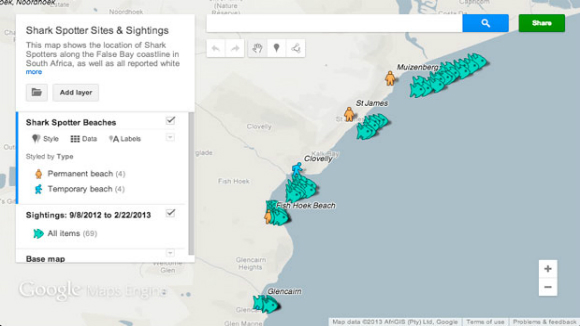Google brings mapmaking to amateurs with Maps Engine Lite

Who'd have thought cartography could be so much fun? Google's new Maps Engine Lite is giving amateur enthusiasts the chance to build and share their own custom maps.
The new web service, which has been available to the pros for some time, lets the casuals build area guides layered with tonnes of info and decorate them with cool colourful icons.
So how does it work? Well, if you've stumbled on some particularly good restaurants - or want to warn people away from an area's not-so-brilliant eating spots - you can now share that information with the world of Google Maps.
GeoFun
That can then be shared around the world, which is pretty neat and potentially quite handy for holidaymakers.
Google is offering nine basic map types, including terrain, satellite and one organised by political boundaries.
There are also around 150 icons that can be placed to highlight a certain feature or landmark, whether it's a lighthouse or a particularly good spot for tennis.
But how useful is it really? Google gave a few example on its blog - one of which was a map with markings of recent sharks spottings along the False Bay coastline in South Africa. So yeah, it could be pretty helpful when it comes to wanting to stay alive.
Sign up for breaking news, reviews, opinion, top tech deals, and more.
For those already using My Maps, it's not going away just yet. But you can now import your existing maps with the ability to load them with tonnes more information.
However, in the long run, Google says that My Maps "will eventually be incorporated into Google Maps Engine Lite".

Hugh Langley is the ex-News Editor of TechRadar. He had written for many magazines and websites including Business Insider, The Telegraph, IGN, Gizmodo, Entrepreneur Magazine, WIRED (UK), TrustedReviews, Business Insider Australia, Business Insider India, Business Insider Singapore, Wareable, The Ambient and more.
Hugh is now a correspondent at Business Insider covering Google and Alphabet, and has the unfortunate distinction of accidentally linking the TechRadar homepage to a rival publication.